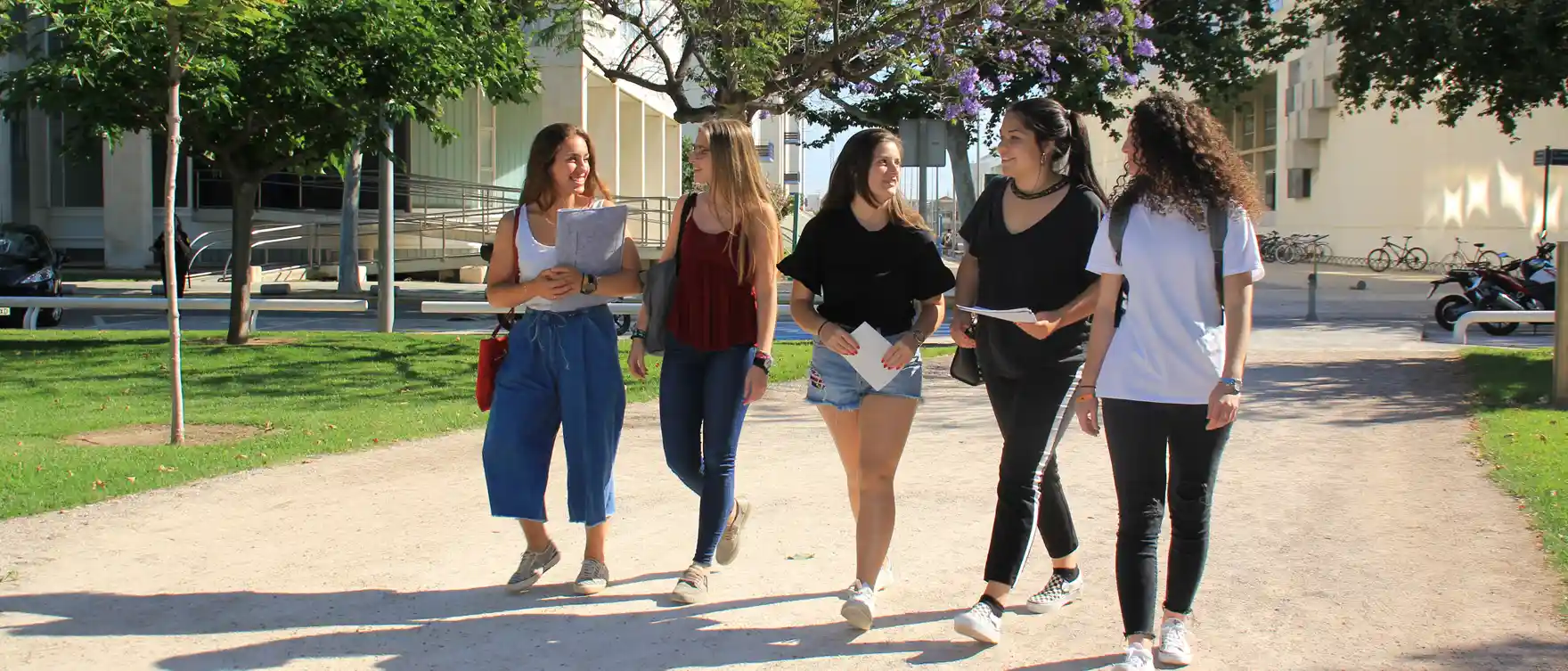Page content
Description of the title
This degree is an interuniversity master’s degree of the Universitat Politècnica de València (coordinator) and the Universitat Autònoma de Barcelona (participant).
The first term (October to December) is taken at UAB. The rest of the course (January to June) is taken at UPV.
The program provides a solid training in these essential basic subjects that support animal breeding and allows the acquisition of experience through the critical review of current breeding and reproductive biotechnology programs carried out in different species, discussions with professionals in the sector and technical visits to public and private institutions involved in breeding programs.
Future livestock models must be based on sustainability, within the framework of competitive production systems that respect animal welfare and the environment. Animal genetic improvement not only contributes to the sustainability of production and increases its profitability, but also makes it possible, through new technologies, to improve its efficiency and adapt it to consumer demand. Thus, population and quantitative genetics, molecular genetics and reproductive biotechnology are currently basic subjects in the development of livestock breeding.
– Population and quantitative genetics: Based on applied statistical techniques, it is the basis of current animal breeding programs of companies and livestock breeders’ associations.
– Molecular genetics: Based on biology and biochemistry techniques, which is increasingly intervening in animal breeding programs.
– Reproductive biotechnology: Based on animal physiology, it offers tools that facilitate the application of genetic improvement methods and the dissemination of genetic progress.
The program provides a solid training in these essential basic subjects that support animal breeding and allows the acquisition of experience through the critical review of current breeding and reproductive biotechnology programs carried out in different species, discussions with professionals in the sector and technical visits to public and private institutions involved in breeding programs.
Main characteristics of the Master:
- Marked international character
- Extensive master’s thesis
- Specialized teachers
- Immediate career opportunities
- Multidisciplinary nature
- Videotaped classes
Objectives of the degree

Update on the scientific basis of animal breeding.

Acquisition of experience in the formulation of breeding strategies for the main species of zootechnical interest.

Training for integration into molecular genetics, breeding, reproductive biotechnology or conservation of genetic resources programs.

Acquisition of skills to meet the specific demands of administrations or companies.

Initiation in the research of problems related to animal breeding. Exchange of experiences and points of view in an interprofessional and international environment, in contact with the sector.

Training for integration into molecular genetics, breeding, reproductive biotechnology or conservation of genetic resources programs.

Acquisition of skills to meet the specific demands of administrations or companies.

Initiation in the investigation of problems related to animal genetic improvement.
Career opportunities
Ninety percent of the students who completed the master’s degree are currently working in areas related to animal breeding or reproductive biotechnology.
- Strong demand for professionals trained in quantitative genetics.
Aimed primarily at
Aimed at university graduates related to animal production or biology.
- Agri-food and Rural Environment Engineering
- Forestry and Environmental Engineering
- Biotechnology
- Biology
- Veterinary
- Animal technician
Structure of the master’s degree
Credits: 120 ECTS
Mandatory:90 ects |Electives:0 ects |External internships:0 ects |Final Master’s thesis (TFM):30 ects
Module 1. Training module :60 ects mandatory
Subject:Molecular Genetics
Minimum credits: 20 | Character: Mandatory
Subject:Applied Plant Breeding
Minimum credits: 27.5 | Character: Compulsory
Subject:Reproductive Biotechnology
Minimum credits: 12.5 | Character: Compulsory
Module 2. Introduction to Research :60 ects mixed
Subject:Principles and Techniques Associated with Research
Minimum credits: 30 | Character: Mandatory
Subject:MASTER’S THESIS
Minimum credits: 30 | Character: Final Degree Project
Internships
NO in-company internships are offered.
Research and access to Ph.
Here you can visit all the options of PhD at the UPV.
Academic exchange / agreements with other universities
Interuniversity Master with CIHEAM and the Autonomous University of Barcelona.
Possibility of carrying out the TFM in collaboration with research centers in INIA-CSIG, GRAG, IRTA and companies in the sector CONAFE, H&N, AVIAGEN.
- Collaboration with other national universities such as the University of Zaragoza.
- International such as the University of Georgia (USA)
Facilities and laboratories
Our department has state-of-the-art facilities, including:
- In-house classrooms and computer labs
- Experimental farms for research and practical education
- Research laboratories equipped with state-of-the-art technology
Master’s Thesis
Master’s thesis is an original research work carried out by the student under the supervision of a director. The research must necessarily be carried out in one of the centers approved by the Academic Committee of the master’s degree, and with a director approved by this Committee.
Exceptionally, students may propose, in writing to the Master’s Director, a different director and laboratory, but this laboratory must be approved by the Master’s Academic Committee. Both the laboratory and the proposed director must meet the requirement of having an international scientific level.
The evaluation of the Thesis will be carried out through its defense in a public act, before a tribunal formed by three members who will be appointed by the Master’s Academic Committee.
Collaborating companies
The Institut Valencià d’Investigacions Agràries (IVIA), the Instituto Nacional de Investigación y Tecnología Agraria y Alimentaria (INIA), the Institut de Recerca i Tecnologia Agroalimentaria (IRTA) and the Centre for Research in Agriculture Genomics (CRAG) collaborate in the academic development of the master’s degree.

